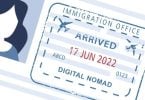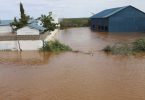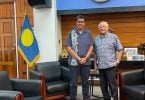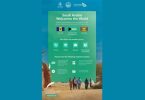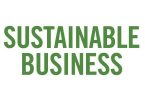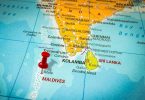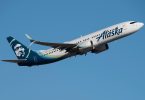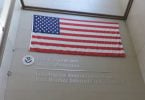According to the IMF, assuming no new external financing and realistic tourism scenarios, the region financing gap will hover at approximately US$4 billion, or 4.8 percent of 2020 regional GDP with (anticipated) natural disasters likely to be part of 2021 (and beyond), the financial shortfall could be even greater.
Vaccine Donations
Many of the LAC countries are dependent on vaccines from other nations or a discounted global program and COVAX, an alliance run by the Coalition for Epidemic Preparedness innovations, Gavi, and the World Health Organization works with UNICEF who provides vaccination services on the ground. The COVAX program was to be headed by India-based Serum Institute, the world’s largest drugmaker; however, now that India is plagued by its own outbreaks the company suspended exports in March. The initiative promised to eventually provide poorer countries with enough vaccines to cover incremental portions of their populations; however, it faces a $23 billion funding gap and delayed shipments (Economist Intelligence Unit).
The US government is scheduled to donate 580 million vaccine doses to support global COVID-19 vaccination efforts. As of June 21, the first 80 million doses had been allocated with approximately 20 million directed to LAC locales with plans to donate additional doses to approximately seven LAC nations.
In addition, USAID partners are assisting livelihoods, distributing hygiene commodities and emergency food assistance, providing technical assistance and essential equipment to health care centers, supporting national governments to develop vaccination strategies, and training frontline medical personnel.
UNEQUAL EFFECT
US Virgin Islands
Not every part of the Caribbean has been hit by COVID. The borders to the US Virgin Islands never closed even when Americans were barred from most of the world. Offering vaccines to everyone and anyone – even before they could get a shot at home, visitors flocked to the American territory’s beaches and restaurants as tests and vaccinations have been required; however, quarantines are not mandated. The result? Hotel occupancy is almost three times that of the region and seven times higher than the Bahamas (STR).
According to the US Virgin Island Department of Tourism, hotels are running at over 90 percent occupancy. As of February 2021, hotel tax revenues reach $1.85 million (a decline of only 28 percent from February 2020).
In the US Virgin Islands, the charter business has expanded and likely to add $88 +/- million to the local economy – almost double the $45 million in 2019 (Marketplace Excellence). This destination was the first American community to vaccinate everyone 16 and older and, as of mid-May, 31,645 residents and tourists had been fully vaxxed.
Airlines connecting to the USVI include Frontier, American, and Jet Blue. As of April 2021, travelers had access to approximately 27 flights a day into St. Thomas and six into St. Croix departing from Boston, New York, Dallas, Chicago, Atlanta, and Florida.
The Virgin Island Economic Development Authority has developed, Vision 2040 plan and tourism is not the major economic engine going forward. The future emphasis will be on agriculture, healthcare, and renewable energy.
Turks and Caicos Islands
The Turks and Caicos recorded that 59 percent of its adults (20,000 people) were fully vaccinated and 62 percent partially vaccinated (May 28, 2021; tcweeklynews.com)
With a $600,000 loan from Ken Patterson, the CEO of Seven Stars Resort & Spa, the Turks and Caicos were able to acquire 60,000 test kits, immediately certifying 18 new testing sites (most at resorts), the trained hotel staff to conduct tests, and passed a series of law to ensure health standards. The result? According to Deborah Aharon, CEO, Provo Air Center, traffic is busier than ever with private jet flights increasing more than 50 percent above rates in place before the pandemic with mid-May traffic increasing 73 percent from 2019.
Tourism currently is at 70 percent capacity and Seven Stars was completely booked in May and almost completely booked for June with little availability until September.
As of June 16, 2021, The US State department assessed this destination at Level 2 indicating a low level of COVID-19 in the country (travel.state.gov).
Aruba
Aruba has been busy putting jabs into arms and as of mid-May, approximately 57,500 of the population were at least partially inoculated. To keep a flow of tourists coming to this small island nation, Jet Blue became a tourism partner offering approximately 40 flights each week from the US to Aruba using CommonPass, the world’s first digital vaccine passport. With the pass, travelers can take a virtual supervised at-home PCR test within three days of departure, upload results, and cut through immigration lines.
Tourism is slowly returning to Aruba and the average hotel room occupancy in May 2021 was 56.3 percentage points higher than the 52.7 percent reached in April 2021. The forecast is optimistic going forward with average room occupancy expected to reach 71 percent in July, and 61 percent in August (Aruba Hotel and Tourism Association).
St. Barth
France locked down its territories and this included the 11-mile-long St. Barth (autonomous but not independent). The island received Pfizer vaccines from France in April and pushed through a massive rollout. More than two-thirds of the island’s adult residents are at least partially vaccinated, and the hospital had no COVID-19 patients. No COVID-19 deaths have been recorded in 2021 as of April 9, 2021.
St. Barth’s is open to travelers from certain countries and before reservations are made, country status should be updated. The US Centers for Disease Control has assessed this destination as Level 1, the lowest risk level for COVID-19.
All visitors over the age of 10 years of age are required to present a negative COVID-19 Antigen test taken within 48 hours of their arrival or a negative COVID-19 PCR test was taken within 72 hours of their arrival. Masks are encouraged when social distancing is not possible and are required on busy streets and entering food indoor establishments (i.e., shops, grocery stores, banks). People without masks will be assessed a $100 fine for non-compliance and a $5000 fine for violating quarantine plus a $2000 fine for intentionally damaging a quarantine tracking device and all travelers must have travel insurance.
Visitors have unrestricted access to public space and beaches. Grocery stores and restaurants are open and in-villa Private Chef services can be reserved.
British Virgin Islands
The British Virgin Islands tourism picture is not as rosy as other island nations as the UK closed the territory to international tourists and strict COVID safety protocols have discouraged visitors to even consider the destination.
The BVI vaccinated 4,201 people (14 percent of the population) by mid-May. Ferries reopened in April with daily service between BVI and USVI. International vessels are still barred and there is no timeline for reopening. Visitors must get tested three times (before travel, after arrival, and following a four-day quarantine). Travelers with proof of completed vaccinations can exit quarantine following a negative test taken upon arrival. Anyone accused of breaking social distancing rules can be fined up to $10,000.





